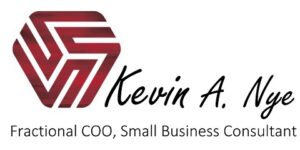In today’s hyper-connected world, technology is not just a convenience, it’s a critical success factor for businesses of all sizes. For small businesses, which often operate with more limited resources than larger corporations, leveraging technology can be a game-changer, streamlining operations, enhancing efficiency, and propelling growth. This article aims to delve into how technology can bolster small businesses, helping them thrive in the current competitive landscape.
The Challenges Small Businesses Face
Before we explore the role of technology, it’s important to understand the context within which small businesses operate. Common challenges they face include financial constraints, maintaining competitive advantage, attracting and retaining customers, and managing operational efficiency. These difficulties can be daunting, but they’re far from insurmountable. Increasingly, technology is providing powerful tools to address these challenges, enabling small businesses to compete on a larger scale.
Understanding Digital Transformation for Small Businesses
Digital transformation refers to the process of integrating digital technology into all aspects of a business, fundamentally changing how it operates and delivers value to customers. For small businesses, digital transformation is not a luxury, but a necessity. It allows small businesses to enhance their agility, responsiveness, and customer engagement. Consider the transformation of small retail businesses that have integrated e-commerce platforms into their sales strategy, vastly expanding their reach and customer base.
Ways Technology Can Improve Small Business Operations
- Enhancing Communication: Technologies such as email, video conferencing, and team collaboration tools enable better communication within businesses and with clients. These tools make correspondence faster, easier, and more reliable, breaking down geographical barriers.
- Boosting Efficiency and Productivity: Project management tools, workflow automation, and time-tracking software can streamline operations and boost productivity. These tools help manage workloads, track progress, and identify bottlenecks, enabling small businesses to do more with less.
- Streamlining Financial Operations: Online banking, accounting software, and digital invoicing systems simplify and expedite financial processes. This not only saves time but also improves accuracy and provides an easily accessible digital record.
- Improving Customer Service: Customer Relationship Management (CRM) systems, chatbots, and social media platforms can elevate customer service. They allow small businesses to interact with customers in real time, address issues promptly, and foster strong customer relationships.
The Role of Technology in Marketing for Small Business
In the digital age, marketing strategies have evolved significantly. Technology such as all-in-one platforms help small businesses to engage in online marketing strategies such as social media marketing, email marketing, and content marketing. Data analytics tools can help businesses better understand their audience and deliver targeted advertising. SEO strategies also help increase visibility in search engine results, enhancing the potential for customer engagement.
How Technology Supports Remote Work for Small Business
In the face of the global shift toward remote work, technology plays a vital role. Tools such as cloud services, virtual private networks (VPNs), and collaboration platforms enable teams to work together effectively, no matter where they are located. This flexibility can be a boon for small businesses, reducing overhead costs and attracting a broader range of talent.
Cybersecurity Considerations for Small Business
As businesses embrace technology, cybersecurity becomes increasingly important. Cyber threats, including malware, phishing, and ransomware, are real risks. To counteract them, small businesses should invest in secure firewalls, anti-virus software, and data encryption. Regular employee training on cyber threats and safe online practices is also crucial.
Future Tech Trends Small Businesses Should Watch For
Emerging technologies such as Artificial Intelligence (AI), Blockchain, and the Internet of Things (IoT) may have profound impacts on businesses. AI can automate repetitive tasks, blockchain can enhance transaction security and transparency, and IoT can help collect valuable business data. Small businesses that stay attuned to these trends can leverage them for future growth and competitive advantage.
Overcoming Hurdles to Adopting Technology
Adopting technology may seem intimidating, particularly considering costs and the learning curve. However, many tech providers offer scalable solutions suited to small businesses. Moreover, numerous resources are available to aid businesses in learning and adopting new technologies. Overcoming resistance to change is crucial in the digital age, and those who adapt are more likely to thrive.
Conclusion
The role of technology in enhancing small businesses cannot be overstated. From operations to marketing, customer service to remote work, technology can propel small businesses toward unprecedented growth and success. In an ever-evolving digital landscape, small businesses must embrace technology not merely as a tool but as a strategic ally in their journey. Remember, technology is your friend.


